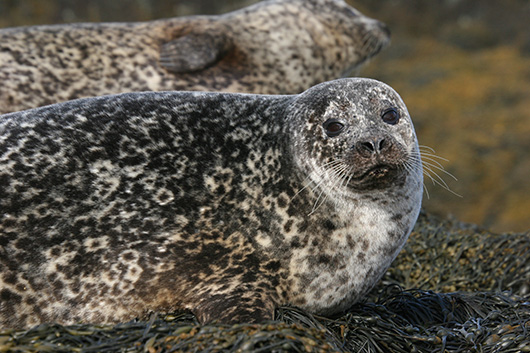Research Excellence Framework 2014 results

The University of St Andrews has been ranked top in Scotland and 14th in the United Kingdom for the quality of its research publications across Science, the Arts, Divinity and Medicine, according to the results of the 2014 UK Research Excellence Framework published today (18 December 2014).
The REF 2014 – a detailed analysis of the research strengths of all UK universities – has demonstrated that 82% of all research carried out at St Andrews is world-leading or internationally excellent and at least 98% is internationally recognised.
St Andrews has expanded its complement of top quality research by 22% since the last national assessment of research quality was carried out in 2008.
REF 2014 found that:
- The general quality of research carried out at St Andrews has improved since 2008. The grade point average of St Andrews’ overall research performance grew from 2.72 in 2008 to 3.13 in 2014, significantly above the UK sector average GPA of 3.03.
- St Andrews was ranked top in Scotland and 14th in the UK for the quality of its research publications.
- St Andrews was ranked 2nd in Scotland and 19th in the UK for overall research performance, assessed by quality of publications, impact and the environment in which research takes place.
- Several subject areas recorded strong overall research performances. Chemistry, Classics, English, Geography & Geosciences, History, History of Art, Management, Philosophy, Physics and Psychology & Neuroscience all demonstrated levels of research excellence significantly above sector averages.
- Chemistry (a joint submission with the University of Edinburgh), Classics, English, Geography and Geosciences, History of Art, History and Philosophy were all ranked top in Scotland.
- Classics (2nd), Physics (3rd, a joint submission with the University of Edinburgh), History of Art (4th) Geography & Geosciences (5th) Philosophy (5th) and English (6th) were ranked among the top 10 in the UK.
- In total, 16 of St Andrews’ subject areas ranked above the UK sector average. Four subjects were ranked below the UK average – Anthropology, Economics and Finance, Medicine and Modern Languages.
- St Andrews is one of the UK’s most research-intensive universities. Over 80% of the university’s research active staff had their work assessed by REF 2014.
- The impact of St Andrews’ research is felt worldwide. REF 2014 is the first research analysis to attempt to measure the impact of universities’ research as an element of overall research strength. St Andrews outperformed the UK sector on research impact, despite its comparatively small size and distance from major urban centres.
- Subjects demonstrating major impact from research at St Andrews were Geography and Geosciences (1st in UK), Biological Sciences (2nd) Management (4th) Classics (4th), English (5th) and History (6th).
Geography and Geoscience – Geochemical research at the University of St Andrews has been helping to combat the global trade in illicit tobacco and its major consequences for health. Our research has contributed to Framework Convention on Tobacco Control policies and supports their implementation by chemically characterising and monitoring potentially toxic environmental metals such as arsenic and cadmium in tobacco.
Biological Sciences – Research undertaken by the Sea Mammal Research Unit focused on the accurate measurement of marine mammal populations and distributions in UK and EU waters. The resulting evidence provided to government has allowed: effective conservation of marine mammals, UK and EU policy objectives defined for marine mammal conservation, and marine mammal bycatch has been reduced by over 90% in key fisheries.
Management – Professor John Wilson’s research has increased understanding of how credit unions have developed in different countries. Such work is especially important in the aftermath of the financial crisis in 2008, as many countries seek to strengthen their retail financial sectors.
Classics – Dr Jonathan Coulston is a leading authority on the Roman army and has engaged the imaginations of a wide audience through his public lectures, work for magazines and TV documentaries, and input to heritage organisations. Museums such as Housesteads Museum on Hadrian’s Wall have drawn on his expertise to classify and display their Roman army collections.
English – Drs Chris Jones and Ian Johnson have collaborated with Flickerpix Animations and Touch Press on an exciting new multimedia iPad app of Seamus Heaney’s translation of Five Fables by the medieval Scottish poet Robert Henryson.
History – Two BBC television series on medieval subjects: Inside the Medieval Mind (BBC4, 2008) and The Normans (BBC2, 2010), written and presented by world-leading medieval historian, Professor Robert Bartlett of the School of History, have exposed millions of viewers to historical documentary about the Middle Ages.
Principal and Vice-Chancellor Professor Louise Richardson said:
“To have come top in Scotland for the quality of our research publications and to have demonstrated wide-reaching international impact from our research in the Sciences and the Arts is a considerable achievement.
“REF 2014 confirms that St Andrews, notwithstanding its small size, continues to punch well above its weight at a time of significantly increased competition in the sector. We are immensely proud of our staff and their dedication to producing work of world-leading quality and impact.
“The results identify research strengths as well as areas where there is room to improve, and we will take all of this into account as we look to invest in excellence as part of the development of our strategic plan in 2015.”
Further detailed information about the REF 2014 and St Andrews’ results are available at:
http://www.st-andrews.ac.uk/research/quality/ref2014/
Read our Research Impact blog.
Issued by the University of St Andrews
Further information [email protected], tel 01334 462530.
Category Research